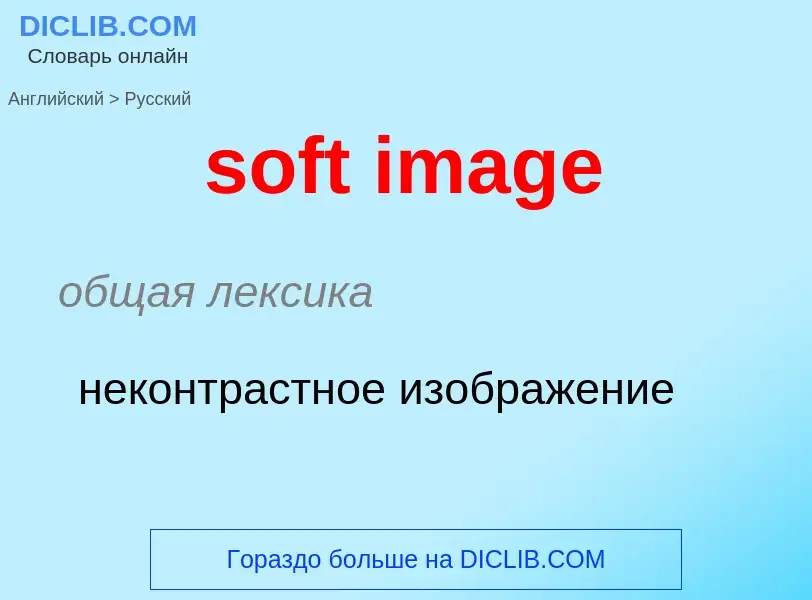Übersetzung und Analyse von Wörtern durch künstliche Intelligenz ChatGPT
Auf dieser Seite erhalten Sie eine detaillierte Analyse eines Wortes oder einer Phrase mithilfe der besten heute verfügbaren Technologie der künstlichen Intelligenz:
- wie das Wort verwendet wird
- Häufigkeit der Nutzung
- es wird häufiger in mündlicher oder schriftlicher Rede verwendet
- Wortübersetzungsoptionen
- Anwendungsbeispiele (mehrere Phrasen mit Übersetzung)
- Etymologie
soft image - Übersetzung nach russisch
общая лексика
неконтрастное изображение
Definition
Wikipedia
In politics (and particularly in international politics), soft power is the ability to co-opt rather than coerce (contrast hard power). In other words, soft power involves shaping the preferences of others through appeal and attraction. A defining feature of soft power is that it is non-coercive; the currency of soft power includes culture, political values, and foreign policies. In 2012, Joseph Nye of Harvard University explained that with soft power, "the best propaganda is not propaganda", further explaining that during the Information Age, "credibility is the scarcest resource".
Nye popularised the term in his 1990 book, Bound to Lead: The Changing Nature of American Power.
In this book he wrote: "when one country gets other countries to want what it wants might be called co-optive or soft power in contrast with the hard or command power of ordering others to do what it wants". He further developed the concept in his 2004 book, Soft Power: The Means to Success in World Politics.


 by Joseph Nye.jpg?width=200)



